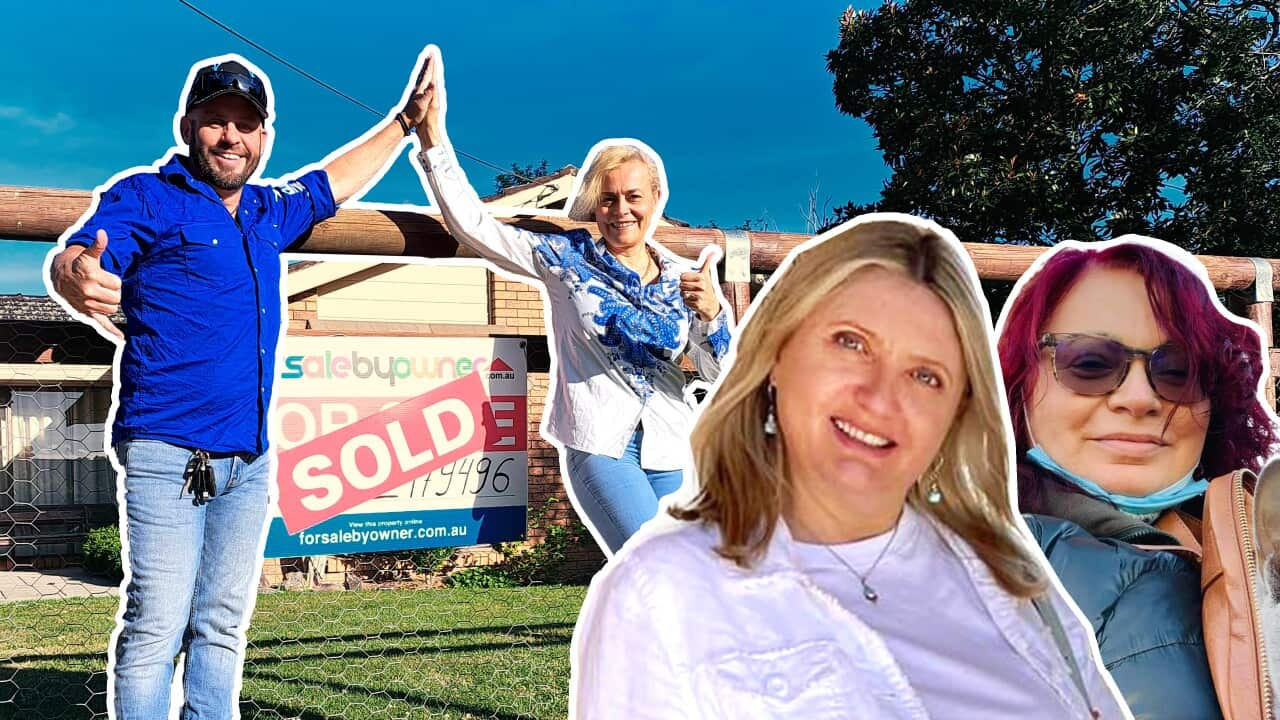Veronica Zeltser is an experienced property investor and has worked with the same real estate agent for several years.
She was planning to sell her unit in St Kilda, an inner beachside suburb of Melbourne, when the agent advised her to wait until interest rates fall and market conditions improve.
Confident she knew the recipe for a successful sale — "preparing the property and getting the price right" — she decided to give selling the property herself a crack.
Armed with an advertisement written up by , she shared it on several local Facebook groups — and was surprised by the level of interest she received.
"I was expecting to get a maximum of five inquiries. But at least 30 people messaged back asking about the property," she said.

Veronica Zeltser sold her St Kilda unit herself. Source: Supplied
Her DIY home-selling approach is unconventional, but not unheard of, and it does come with risks.
But some in the property industry say more people are trying their hand at it.
Mixed experiences
Vendors will typically engage an agent when putting their home on the market.
Indeed, InfoTrack's latest State of Real Estate report surveyed 130,000 people "who had been involved in a property transaction" and agents were engaged in property transactions in 90 per cent of cases.
Like Zeltser, Veronica Baker from NSW's Southern Highlands region has had self-listing success — in her case, with two properties.
Baker decided to take that route after the agent for her first listing didn't offer "anything concrete" after three months and suggested reducing the sale price.
She said she wanted to have direct contact with the prospective buyers.

Veronica and Robert Baker successfully sold two properties without a real estate agent. Source: Supplied
But Victoria-based Katya Kuznetsova wasn't as lucky.
She used an online platform that assists private sellers, including listing the property on popular real estate websites.
But after several weeks, the property received only five inquiries, leading her to decide to work with an agent — although doing so did not spark a flurry of interest.
"There were not many more inspections through the agent either. The market at that point was quite bad," she said.

Katya Kuznetsova said she had very few inquiries when she listed her home for sale herself. Source: Supplied
However, her failure to sell her home herself hasn't completely put her off the idea, and success might depend on market conditions.
"If the market is good, why should one pay for the agent?," she said.
"But if the market is bad and there are few buyers, the agent will have better contacts. In our case, the agent found the buyer, and it was his contact."
Pros and cons
Dr Mustapha Bangura is a senior lecturer at the University of Technology Sydney, specialising in property and finance. He said there are arguments both for and against selling property without an agent.
Bangura said the seller might save on commission, typically around 2-3 per cent of the sale price. But they might also have limited knowledge of the market.
"The real estate agent may have a network of buyers, possibly creating competition that could land you a good price," Bangura said.
"Also, the property may take up to 12 months or more to sell, so using the right agent could speed up the transaction for you. They can also potentially advise you on when a good time to sell is."
There are also obstacles if DIY vendors want to list on major property marketing platforms.
They do not permit sellers to list properties for sale or rent directly and only work with licensed agencies.
But some companies facilitate this.
'The space is growing'
Several companies are officially licensed as real estate agencies but have a business model structured around helping the vendors sell privately.
As well as advertising the property on popular listing websites, they also offer additional services, like printing signs, preparing a house plan, and photography.
Colin Sacks founded For Sale By Home Owner 15 years ago. He said it now lists more than 2,000 properties a year.
"I would say the amount of inquiry has doubled," he said.
"It's still obviously small compared to the real estate agents' domination of the space, but it's absolutely growing."
Sacks believes there are a number of reasons for that. Some hear success stories and want to try selling themselves, while others want to save on fees.
Legal requirements for selling a property
There is one step in the DIY process that where a professional is necessary: checking all legal requirements with a conveyancer. Their fees are typically around $2,000.
Jennie Tonner is vice president at the Australian Institute of Conveyancers' NSW branch and founder of Cremorne Conveyancing.
She said the biggest risks when selling the property are set out in the legal documents.
"Vendors and purchasers think that buying and purchasing a property and the legal requirements is a box to tick. Unfortunately, that's what it's become," she said.
She said the vendors must have a contract of sale.
"The contract has various legislations that govern it," she said. "So you need someone who specialises in real estate law to know what to put in that contract … to minimise the vendors' risk and to also minimise the ability for a purchaser to pull out of the contract once they've already done work."
Tonner said that in her experience, vendors without an agent rarely got the price they desired or often had their property on the market for a longer period.
"I can understand why a vendor doesn't want to spend that kind of money when they could keep it in their pocket. But that's [service rate], probably something more that should be looked at rather than removing the agent altogether. Because the agent does provide a good service to get the highest price," she said.
Oliver Burton, a director at Lumin Property Buyers, said the temptation to sell without an agent is related to the perceived reputation of real estate professionals.
"Like any industry, there are great people who work very hard and are very honest, and there are operators that are perhaps less scrupulous," he said.
The information in this article is general in nature and is not intended as advice. You should consult with a licensed professional to make the decisions that are right for you.












